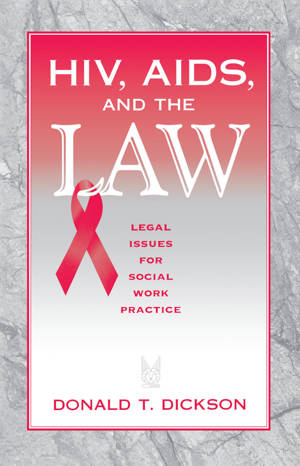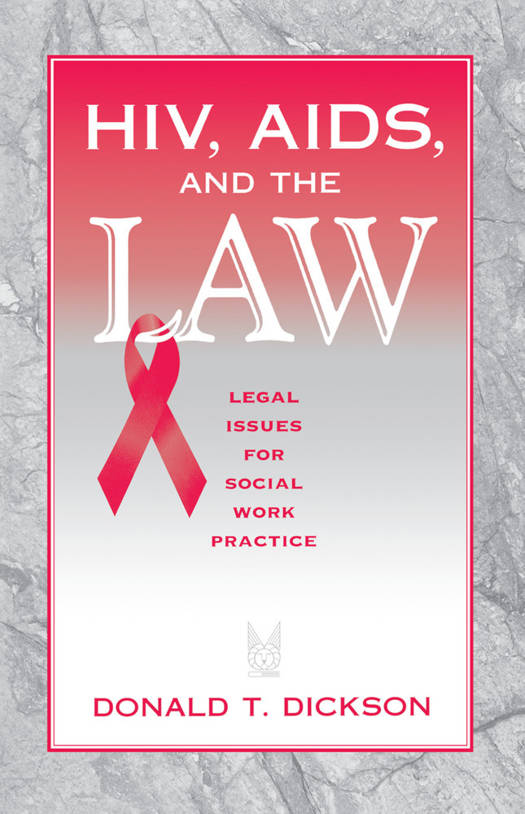
- Retrait gratuit dans votre magasin Club
- 7.000.000 titres dans notre catalogue
- Payer en toute sécurité
- Toujours un magasin près de chez vous
- Retrait gratuit dans votre magasin Club
- 7.000.0000 titres dans notre catalogue
- Payer en toute sécurité
- Toujours un magasin près de chez vous
89,95 €
+ 179 points
Format
Description
Although morbidity among HIV/AIDS victims has decreased, the rate of new infections has remained steady for several years, substantially increasing the likelihood that this epidemic will continue and expand as a concern for social workers and their clientele, both of whom will need to be kept informed of the complex laws governing the milieu and the consequences of the disease. This is certainly the case with its spread throughout Asia and Africa. In this new work, the author draws upon statutes and court decisions from across the United States to provide a comprehensive and current picture of the many facets of HIV/AIDS law, including health policy; confidentiality; privacy; bioethics; the workplace; and criminal law and corrections. The volume of legal, medical, social science, and popular literature pertaining to HIV/AIDS that has been published over the past two decades is staggering. Hence, any addition to this collection needs some justification. What Dickson offers is different from what has preceded. Rather than one more contribution to the extensive legal or social science literature, this book attempts to integrate the perspectives from two fields: law and social work. The hope is that this will give social workers, practitioners, and teachers a better understanding of one of the major issues that may face them in their work with patients and clients every day.To date, although there is extensive HIV and AIDS-related literature in social work and the social sciences, it is primarily focused on social work practice issues. Where law has been introduced in these works, it often is narrow in focus and, given the rapid changes in the field, no longer up to date. This book does not purport to discuss all legal issues in all jurisdictions relating to HIV/AIDS, but rather to choose selectively those that have particular relevance for social work and social policy. The author has placed reliance on those published medical works cited with approval in the legal and social science literature. This is a seminal work on the relationship of law, medicine, and ethics.
Spécifications
Parties prenantes
- Auteur(s) :
- Editeur:
Contenu
- Nombre de pages :
- 198
- Langue:
- Anglais
- Collection :
Caractéristiques
- EAN:
- 9780202361284
- Date de parution :
- 31-10-01
- Format:
- Livre broché
- Format numérique:
- Trade paperback (VS)
- Dimensions :
- 164 mm x 229 mm
- Poids :
- 281 g

Les avis
Nous publions uniquement les avis qui respectent les conditions requises. Consultez nos conditions pour les avis.






